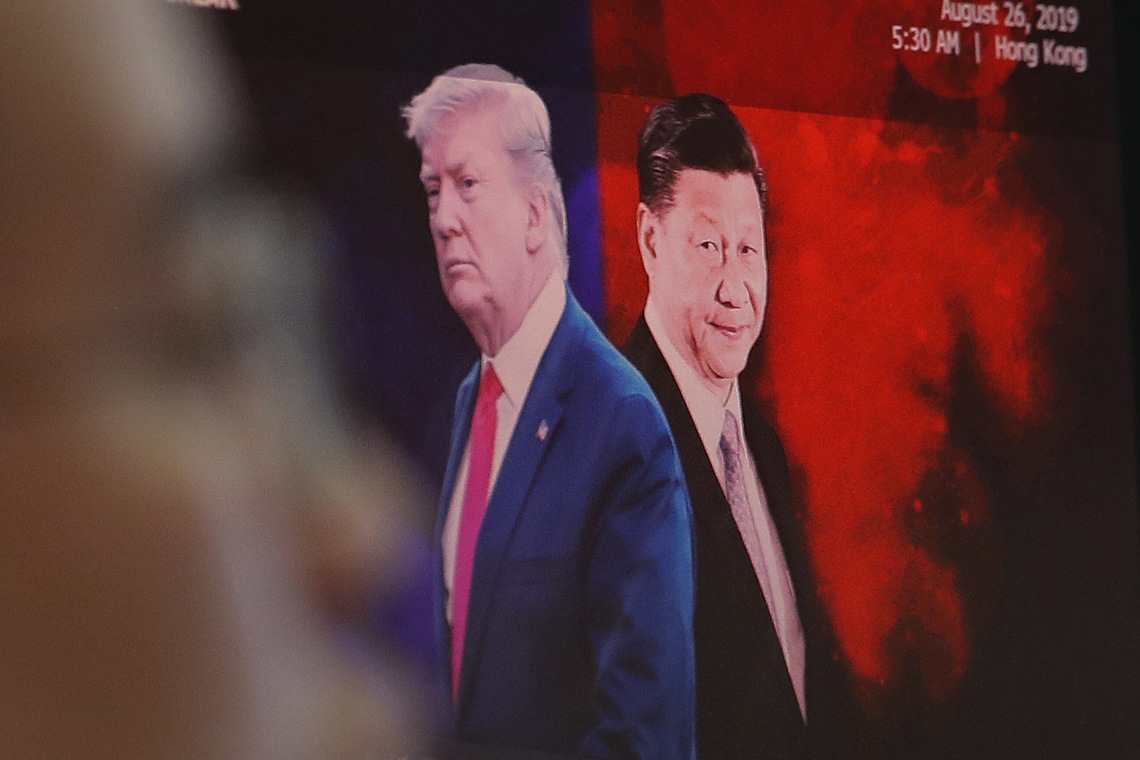Treasury Yields Surge With Stocks After China Hoodwinks Investors

Treasury yields rose along with stocks after China’s Commerce Ministry confirmed that in-person trade talks with Washington will resume in October. | Source: Nicolas Asfouri / Pool Photo via AP
U.S. government debt yields rose along with stocks Thursday after China’s Commerce Ministry confirmed that in-person trade talks with Washington would resume in October.
Investors clearly took China’s bait, setting the stock market up for a potentially disappointing start to the fourth quarter.
Treasury Yields Rise as Stock Market Soars
Demand for government-backed Treasurys weakened on Thursday, as bond yields fell across the board. The benchmark 10-year U.S. Treasury yield reached a session high of 1.59%, according to CNBC. The yield rose 10.5 basis points by the close to finish at 1.1554%.

The yield on the 2-year Treasury note rose 10 basis points to 1.538%. Last month, the interest rate on the 2-year note exceeded the rate on the 10-year Treasury for the first time since before the financial crisis. Such inverted yield curves are widely seen as reliable proxies for recession. Yields rise as bond prices fall.
U.S.-China Trade Talks Fuel Market with False Optimism

The prospect of U.S.-China trade talks fueled fresh gains on Wall Street, with the S&P 500 Index coming within 15 points of 3,000. The benchmark index last traded at those heights in late July before undergoing a punishing reversal.
Ironically enough, a huge chunk of that correction was tied to concerns over escalating trade tensions between the United States and China. Those fears were realized just a few days ago after both countries initiated new tariffs on each other’s goods.
Now, China is promising a fresh start in early October when it sends another trade delegation to Washington to resume negotiations. The meeting was reportedly approved by Chinese Vice Premier Liu He, U.S. Trade Representative Robert Lighthizer and Treasury Secretary Steven Mnuchin.
As we’ve seen time and time again, trade optimism often ends in disappointment, and the reverberations are quickly felt across the financial markets. There’s little to suggest this time will be any different given how far both sides are on matters related to tariffs, Chinese industrial policy and intellectual property.
It’s also apparent that Donald Trump is willing to use the trade war as a bargaining chip with American voters ahead of the 2020 presidential elections. The road that President Trump paved regarding trade cannot be erased by a new administration.
The cost of the trade war is already hitting manufacturers across the globe. U.S. factory output declined in August for the first time in three years, according to private-sector survey data collected by the Institute for Supply Management. Meanwhile, Chinese industrial production slowed to a 17-year low in July.